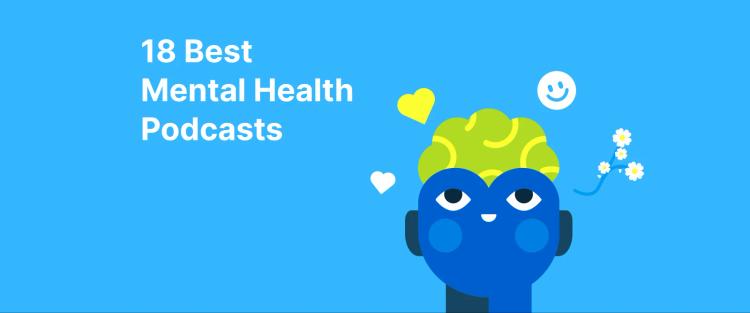Chapter One: What is mental strength?
We all possess some degree of mental strength, but there is always room for improvement. People aren’t just categorized into mentally strong and mentally weak. Developing mental strength is about your ability to regulate your emotions, manage your thoughts, and behave in a positive manner. Mental strength comes easily to some people as they are generally more predisposed to physical strength than others, but it doesn’t mean others can’t have such strength as well, you just have to develop and maintain it. It makes you resistant to stress and improves your contentment with life. It also enhances and increases people’s performance and people’s success in whatever goal they choose.
Keep reading to find out the 13 things mentally strong people don’t do.
Chapter Two: Mentally strong people don’t waste time feeling sorry for themselves

Sometimes, as humans, something tragic and irreversible happens to us, but that is no excuse to give up.
Everyone experiences pain and sorrow in life.
And although sadness is a normal and healthy emotion, dwelling on your sorrow or misfortune is self-destructive. Whatever the problem is, always know that there is a light at the end of every dark tunnel. It is good to remember that sadness is a part of life and grief is okay, but thinking other people have it better is unhealthy.
Indulging in self-pity hinders living a full life in the following ways:
It is a waste of time. Feeling sorry for yourself requires a lot of mental energy and actually does nothing to change the situation.
It leads to more negative emotions. Once you allow it to hold, self-pity will ignite a flurry of other negative emotions like loneliness and resentment.
It can become a self-fulfilling prophecy. When you feel sorry for yourself, you’re unlikely to perform at your best. And as a result, you may experience more problems and increased failures.
It prevents you from dealing with other emotions. Self-pity can stall your progress from healing and moving forward as it keeps the focus on why things should be different rather than accepting the situation for what it is.
It causes you to overlook the good in your life. Self-pity causes you to forget to be grateful for five good things that happened and focus on the first failure.
It interferes with relationships. A victim mentality is not an attractive trait. Complaining about how bad your life is will wear on the people around you quickly. We all experience pain and sorrow one way or the other, and it is by building resilience that we become stronger.

Chapter Three: Mentally stronger people don’t give away their power
There is always someone we feel is against us. It is unavoidable. They are there to be unbearably intrusive and irritating, undermine your authority, and undoubtedly get on your nerves. It is perfectly reasonable for humans to get incensed and want to react. However, it is unhealthy to devote much time and energy to nurturing those negative emotions as you are effectively giving them power over you to control your reaction to your emotions.
Until you focus your energy on things that hold more value to you, negative emotions will always have that power against you.
The following are the problems that come with giving away your power:
You depend on others to stop regulating your feelings
You let other people define your self-worth
You avoid addressing the real problem
You become a victim of your circumstances
You become highly sensitive to criticism
You lose sight of your goals
You ruin relationships
Identify the people who have taken your power and reclaim it. This will make you stronger.
Chapter Four: Mentally strong people don’t shy away from change
Change is a part of life, and it is a part of being human. But it is hard, and even though we know we will improve our lives if we embrace it, we often resist it because our routine right now is easy and comfortable. It is okay to be afraid to change your life.
When diving into changes too fast, we overwhelm and tire ourselves out instead of facing the change.
There are five stages of change:

Pre-contemplation: When people are pre-contemplative, they don’t yet identify any need to change.
Contemplation: People who are actively contemplative are considering the ups and downsides of making a change.
Preparation: This is the stage where people prepare to effect a change. They establish a plan with concrete steps that identify what they want to do differently.
Actions: This is where you embrace change, and the concrete behavioral changes take place.
Maintenance: This step is often overlooked but essential. It is important to plan ahead so as to maintain lifestyle changes and don’t give up.
Five stages of change are Pre-contemplation, Contemplation, Preparation, Actions, Maintenance.
If what you are trying to change is too much and you attempt it alone, it is doomed to fail. It is then you need to accept help and support from people you trust and also take it one step after another, committing to the goals you have set.
Chapter Five: Mentally strong people don’t focus on things they cannot control
There are several problems associated with trying to control everything:
It leads to increased anxiety
It wastes time and energy
It ruins relationships
It makes you judge others harshly
You’ll unnecessarily blame yourself for everything.
Learn to let certain things go. Understand that some things are just beyond your control. Holding on sometimes hurts more than letting go. If you’ve exhausted all possible options to get something to work your way and it doesn’t, it would be unreasonable, unhealthy, and unwise to keep at it.
Accept that you cannot control it all for your peace and wellbeing and move on. Learn to influence and not control.
FAQ
What is the main takeaway from Amy Morin’s bestselling book?
Amy Morin, a psychotherapist and psychology instructor, shares powerful insights into building mental muscle in her bestselling book, '13 Things Mentally Strong People Don’t Do.' This book is more than just a self-help guide; it’s a tool to identify and eliminate bad habits that can hinder success. Mentally strong people don’t expect the world owes them anything or make the same mistakes over and over. Instead, they cultivate alone time, work hard every day, and avoid procrastination to reach the top. Whether you’re looking for immediate results or aiming to start living a more resilient life, this book provides clear strategies to strengthen your mental strength.
Who can benefit from this summary, and where can I find more resources?
This 15-minute summary is perfect for CEOs, strong women, and anyone seeking self-compassion and clarity in their journey to success. Amy Morin’s work, featured on Forbes and her website, amymorinlcsw.com, offers further insights through her TEDx talk, podcast, and other resources. Whether you're feeling lost or need a nice pickup, this summary will help you avoid common pitfalls and start making positive changes today. You can also explore reprints and collectible editions of the book for an in-depth understanding.
What is the main message of '13 Things Mentally Strong People Don’t Do'?
The book emphasizes the importance of mindset and emotional discipline. It teaches readers to recognize self-sabotaging habits and replace them with intentional, strength-building behaviors.
Who should read this book by Amy Morin?
It’s ideal for anyone working on emotional resilience — from leaders and entrepreneurs to people navigating grief, anxiety, or burnout. The advice is actionable and easy to apply in daily life.
How is this book different from other self-help books?
Unlike many self-help books that focus on what to do, Amy Morin highlights what not to do. This reverse approach helps readers identify destructive thought patterns and cut them out for long-term mental strength.
Is '13 Things Mentally Strong People Don’t Do' backed by research?
Yes, Amy Morin is a licensed psychotherapist and draws on both clinical experience and psychological research. Her insights are grounded in science but delivered in a relatable, easy-to-digest format.
Can the principles in the book help with everyday challenges?
Absolutely. The book covers common struggles like fear of change, people-pleasing, and dwelling on the past. It offers realistic tools to handle challenges with confidence and clarity.







